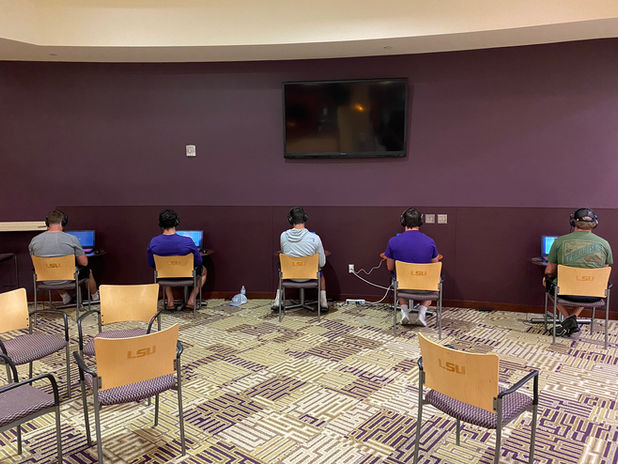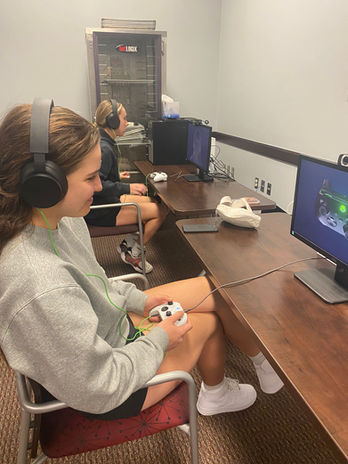
BUILD A WINNING ORGANIZATION
At the college and professional level, S2 helps teams and organizations with scouting and recruiting decisions, player development, coaching strategy & guidance, and analytics. We don’t just drop you with data – we help you interpret, make decisions, and build better athletes using that data.
See how S2 can help you add top players that fit your scheme and make game-winning decisions.
Add another piece to your scouting & recruiting puzzle
Show recruits that you leave no stone unturned to get them to the next level by being dedicated to improving ALL aspects of performance & exposing them to what is being used at the next level.
Hear how Division I college & pro coaches leverage S2's data to recruit and train better athletes.
The 5 Buckets of Performance
Five components make up the complete picture of human performance.
While physical attributes such as strength and speed help prospects stand out, their unique cognitive abilities and in-game decision-making – their “instincts” – truly separate the good from the great.

PSYCHOLOGICAL
Emotion Regulation
Response to Failure
Anxiety
Grit
Motivation
PHYSICAL
Measurables
Strength
Speed
Power
Balance
TACTICAL
Game Knowledge
Game Experience
Situational Awareness
COGNITIVE
Visual Processing Speed
Trajectory Prediction
Improvisation
Angle Judgment
Distraction Control
MECHANICS
Technique
Form
Footwork
Motor Patterns
Flexibility
THE VALUES OF S2'S DATA
Take the guesswork out of talent evaluation.
When predicting player performance and how their game will translate to the next level, physical attributes, statistics, game film, and interviews only tell half the story…
S2 FOR SCOUTS
S2 FOR COACHES
Confirm your intuition about a player.
Identify cognitive profile traits to fit
your team needs.
Build and have access to historical databases for player comparison.
Determine which situations, schemes, or play style are most successful.
Understand the why’s behind athletes' play style, decisions, and struggles.
Adjust your scheme to players' strengths and weaknesses.
Get the most out of your players
Add to your player development strategy using scientifically backed drill work & strategies – no guesswork. S2 provides either the conceptual framework to design new or better drills for improving cognitive performance or specific drill work designed by pro and college coaches who focus on cognitive training.
Use our Playbook as a reference for education, strategies, tactics, and drills to make your workflow more efficient.

Analytics:
The postseason
S2 works with analytics teams to help build models, look for relationships to performance, and integrate with other pieces of valuable data.
S2 is fully integrated with TruMedia to support our college and professional clients.
HELPING PROGRAMS BUILD2WIN
Whether inside your campus building or in The S2 Mobile Lab, we partner onsite at team facilities to evaluate talent and help with training and player development programs.
Keep an S2 testing station in the building to test recruits and free agents anytime, or bring The S2 Mobile Lab out to test prospects at showcases and camps.
WAYS TO PARTNER WITH S2































